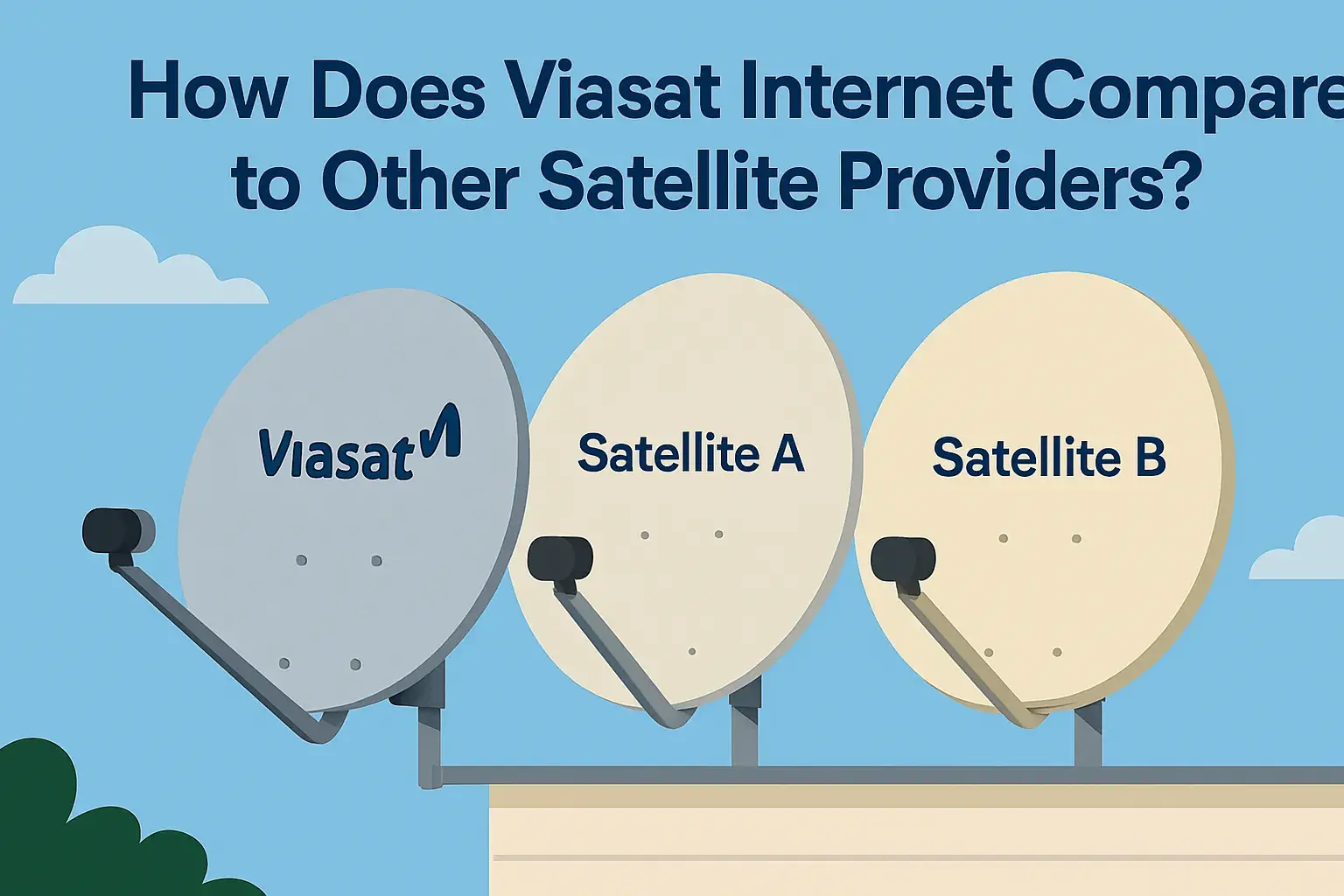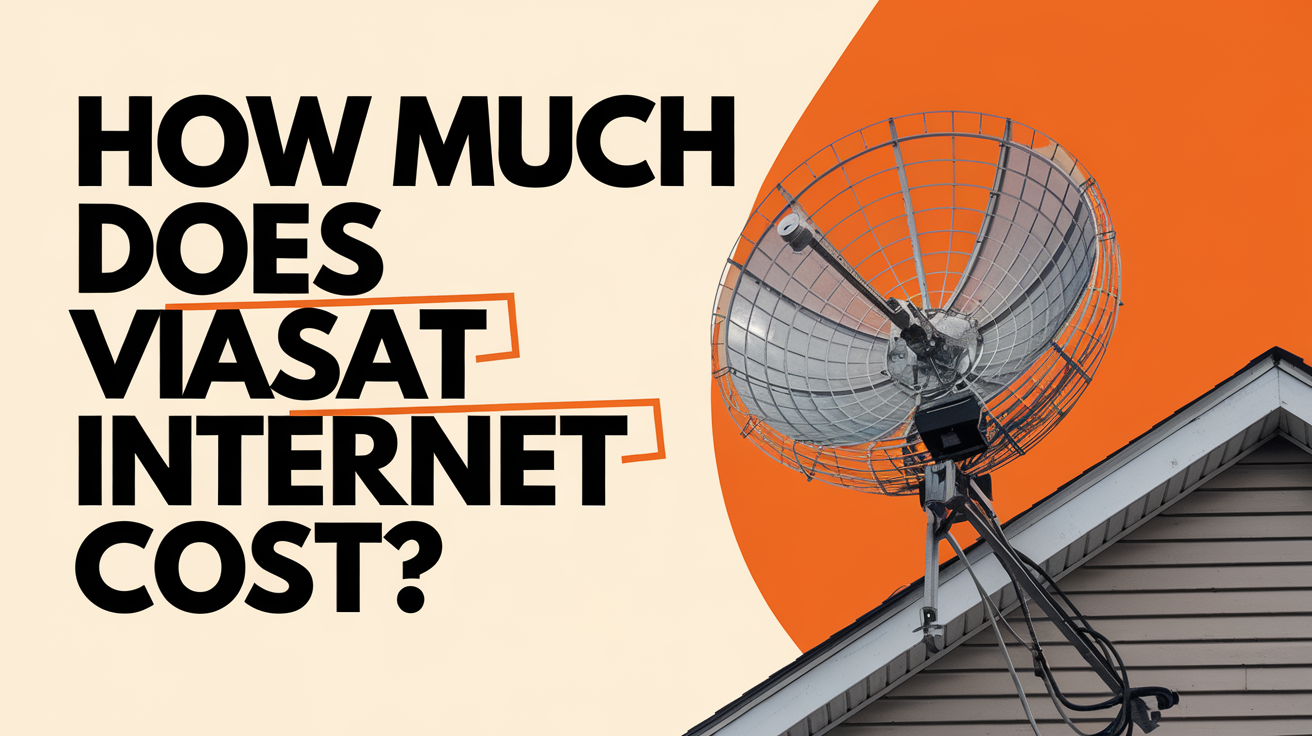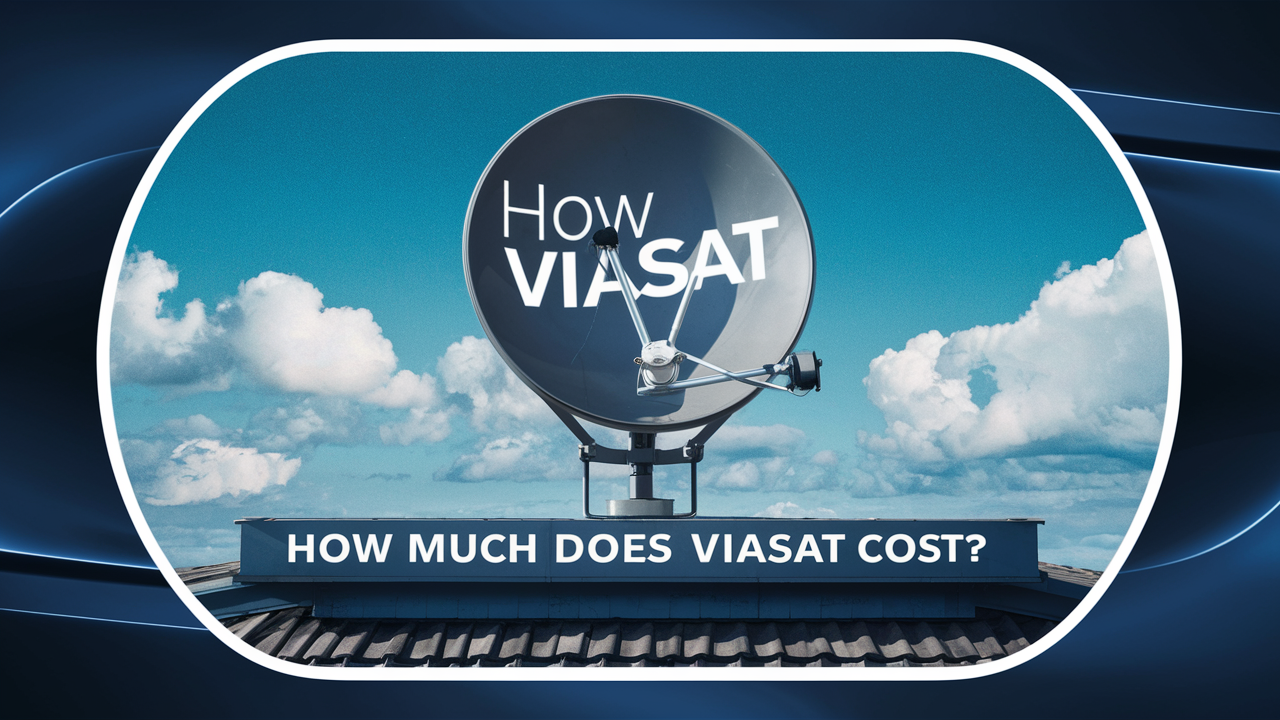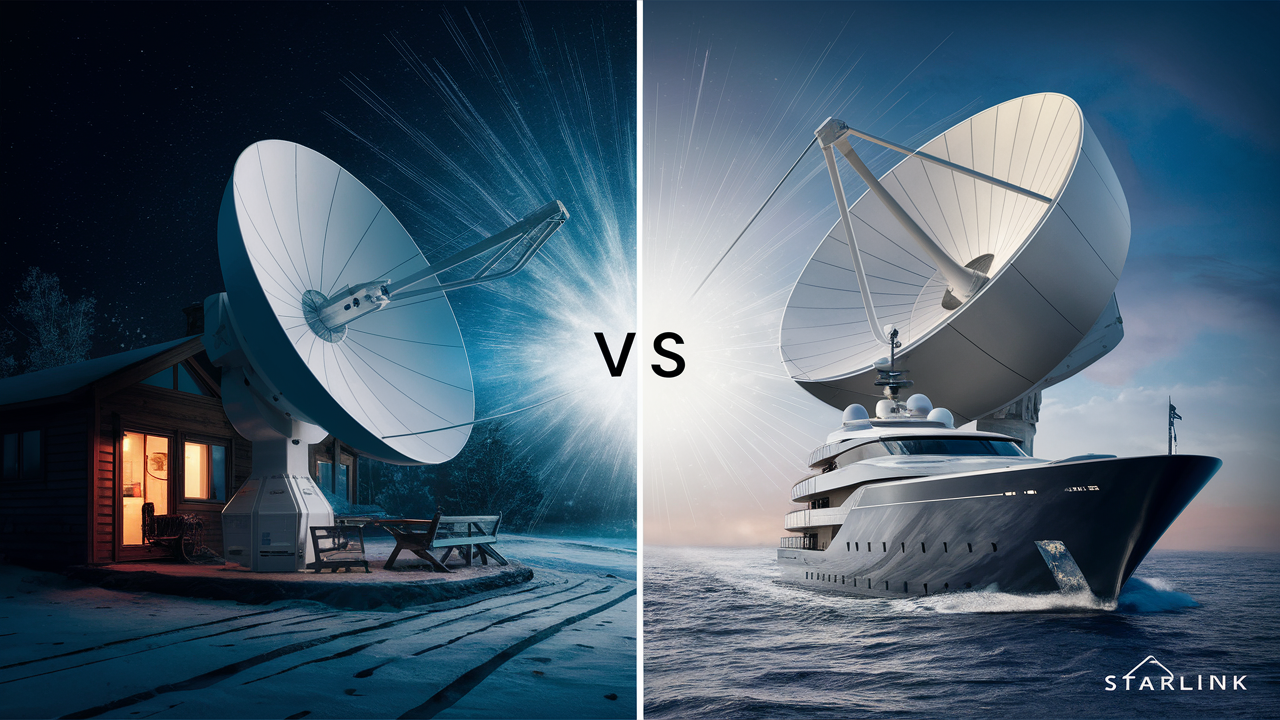-
Posted on: 15 Jul 2024

-
Satellite internet has grown more advanced and widely accessible in recent years. For people living in rural or underserved areas where fiber and cable are unavailable, providers like Viasat, HughesNet, and Starlink offer viable options. But how does Viasat Internet compare to other satellite providers when it comes to speed, reliability, data usage, customer service, and pricing?
1. Key Satellite Internet Providers in the U.S.
The main players in the satellite internet market include:
- Viasat – Established provider known for flexible plans and nationwide coverage.
- HughesNet – Another long-standing satellite internet provider with consistent performance.
- Starlink – Elon Musk’s low-Earth orbit satellite internet service offering ultra-low latency and fast speeds.
2. Coverage & Availability
Viasat
Viasat has coverage across the entire continental United States, as well as parts of Alaska and Hawaii. Its satellite footprint makes it ideal for rural and remote areas.
HughesNet
Like Viasat, HughesNet offers coast-to-coast coverage in the U.S. It uses a geostationary satellite system, so its reach is extensive but limited to specific bandwidth per area.
Starlink
Starlink is still expanding, but it has rapidly increased its coverage across North America. It uses a constellation of low-Earth orbit (LEO) satellites, allowing wider global coverage over time, including hard-to-reach regions.
3. Speed Comparison
Provider Download Speed Upload Speed Latency Viasat 12–150 Mbps (plan dependent) 3–4 Mbps 600–700 ms HughesNet 25 Mbps (standard) 3 Mbps 600–800 ms Starlink 50–250 Mbps (or higher) 10–20 Mbps 20–50 ms Starlink clearly wins in raw speed and latency due to its LEO satellite network. However, Viasat offers more speed options than HughesNet, especially with its premium plans.
4. Data Limits and Policies
Viasat
Viasat offers data allowances between 60GB to unlimited, depending on your plan. However, it has a soft data cap, meaning that speeds may slow down after the threshold is exceeded during high-traffic periods.
HughesNet
All HughesNet plans come with 15GB–100GB of data. After you reach the cap, you won’t be cut off, but your speeds are throttled to 1–3 Mbps.
Starlink
Starlink initially offered unlimited data but has recently introduced fair use policies in some regions. Users may experience reduced speeds during congestion if they exceed a priority threshold.
5. Reliability and Weather Impact
Both Viasat and HughesNet use geostationary satellites located 22,000 miles above Earth. This makes them more susceptible to signal degradation during storms and rain fade.
Starlink’s LEO satellites operate much closer to Earth, reducing latency and making it more resilient during bad weather—though heavy snow or rain can still impact service.
6. Installation & Equipment
- Viasat: Requires professional installation. Includes a satellite dish and modem/router.
- HughesNet: Also requires a technician to install the satellite dish and router.
- Starlink: Offers a self-installation kit. Comes with a phased-array antenna, router, and app for easy setup.
7. Price Comparison
Provider Monthly Cost Installation Contract Viasat $49.99–$150+ Free with contract or up to $300 without 2 years (or no-contract option available) HughesNet $49.99–$149.99 Up to $200 2 years Starlink $120–$150 residential; $250+ business $599 for equipment No contract While Starlink’s equipment cost is high upfront, it offers flexibility with no long-term contract. Viasat and HughesNet are more affordable initially but require commitment.
8. Customer Service & Satisfaction
- Viasat: Offers 24/7 customer support and optional EasyCare plan for prioritized service calls.
- HughesNet: Has decent customer support ratings, though slower response times reported.
- Starlink: Mostly online support via app or portal. No live phone support as of now.
9. Gaming and Streaming Performance
Because of high latency, traditional satellite providers like Viasat and HughesNet aren’t ideal for fast-paced online gaming but are fine for single-player games. Streaming in HD is supported but may hit data caps.
Starlink, due to its low latency, performs far better for multiplayer gaming and 4K streaming.
10. Business and Commercial Plans
- Viasat Business: Offers dedicated speeds, priority data, and service-level agreements (SLAs).
- HughesNet for Business: Includes support for VoIP and credit card processing.
- Starlink Business: Offers higher throughput and SLAs, especially for remote enterprise setups.
11. Viasat vs Starlink vs HughesNet: Pros & Cons
Viasat Pros:
- Wider plan selection
- Good for moderate streaming and browsing
- Nationwide availability
Viasat Cons:
- High latency
- Speeds can drop after soft cap
HughesNet Pros:
- Stable, consistent speeds
- Reasonable pricing
HughesNet Cons:
- Low data caps
- Slower overall speeds
Starlink Pros:
- Very fast download/upload speeds
- Ultra-low latency
- No contract commitment
Starlink Cons:
- Expensive equipment
- Still expanding coverage
Conclusion
Viasat holds its ground as a strong satellite internet option, especially if you need flexible data plans and nationwide coverage. It outperforms HughesNet in speed variety but can’t yet match Starlink’s revolutionary low latency and bandwidth. Depending on your location, budget, and internet usage, each provider offers unique strengths. For rural users seeking reliability, Viasat is still one of the best available solutions.
FAQs: Viasat vs. Other Satellite Providers
Which is better, Viasat or HughesNet?
Viasat typically offers higher speeds and more flexible data options, making it a better choice for streaming and multitasking.
Is Viasat faster than Starlink?
No, Starlink generally provides faster speeds and lower latency compared to Viasat, thanks to its low-Earth orbit satellite system.
Does Starlink have a contract like Viasat?
No, Starlink does not require contracts, while Viasat often requires a 2-year agreement for best pricing.
Is Viasat good for rural areas?
Yes, Viasat is widely used in rural areas where fiber or cable is not available and offers reliable service for everyday needs.
Can I switch from HughesNet to Viasat?
Yes, many users switch from HughesNet to Viasat for higher speed options and more generous data allowances.





